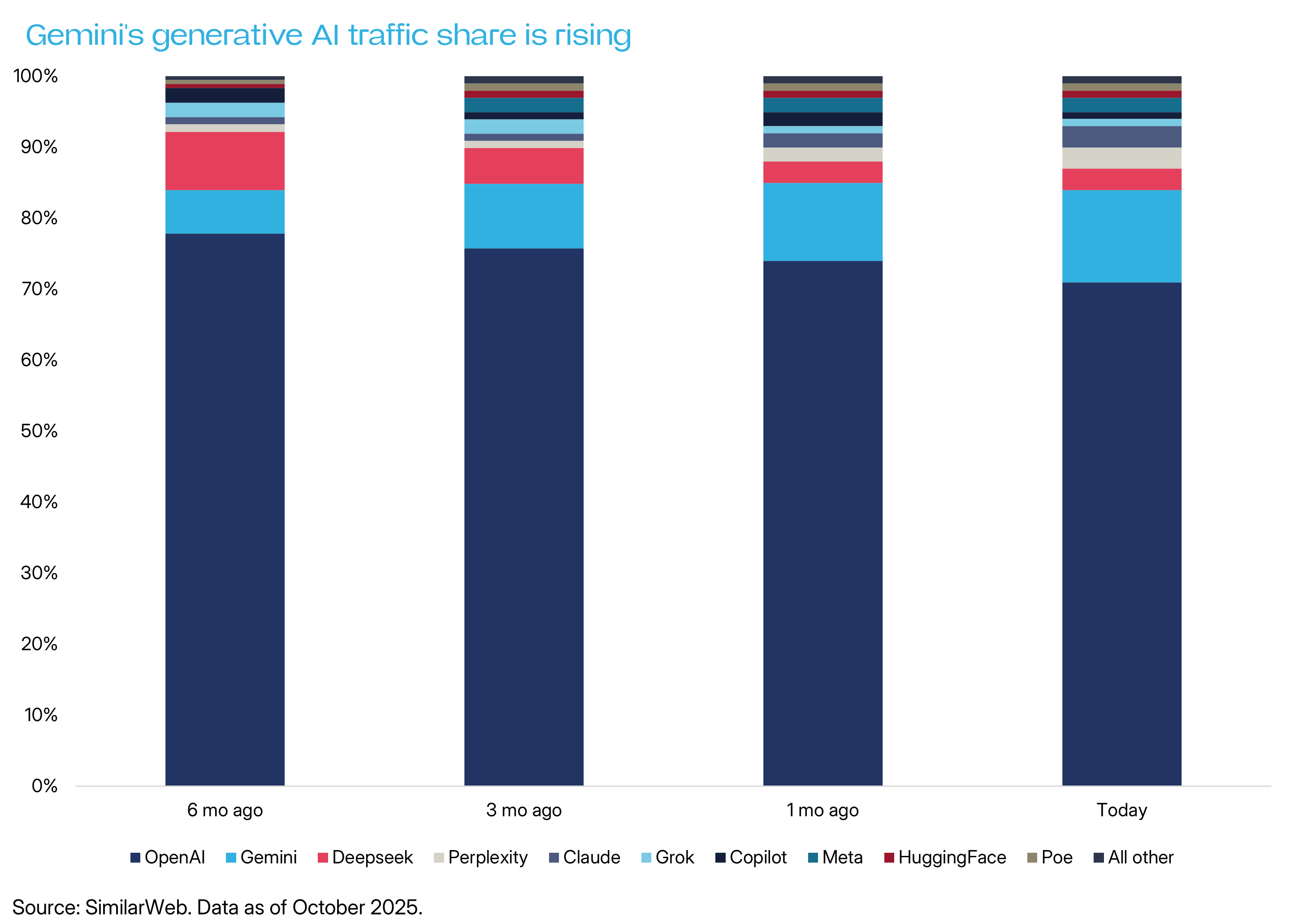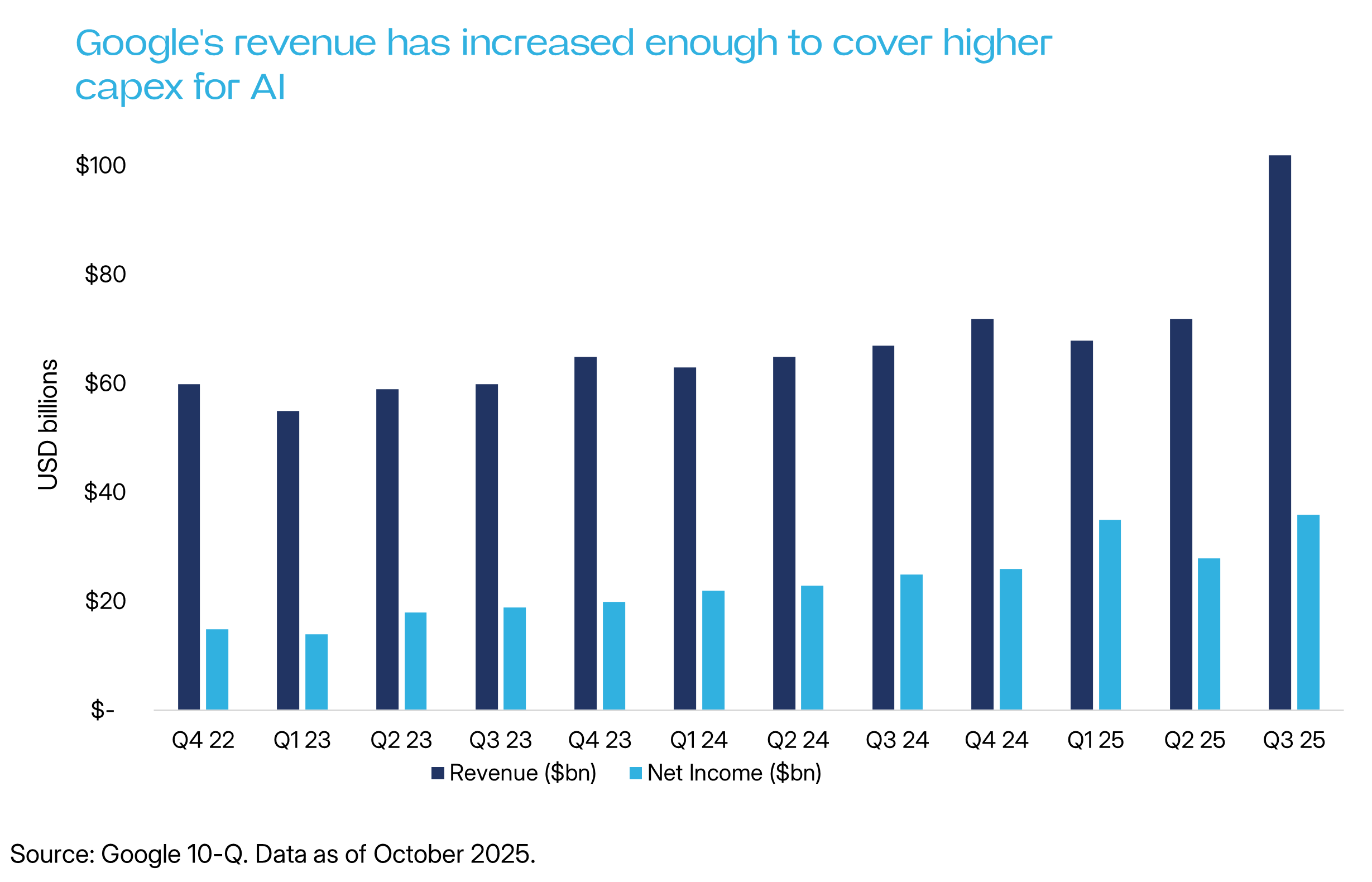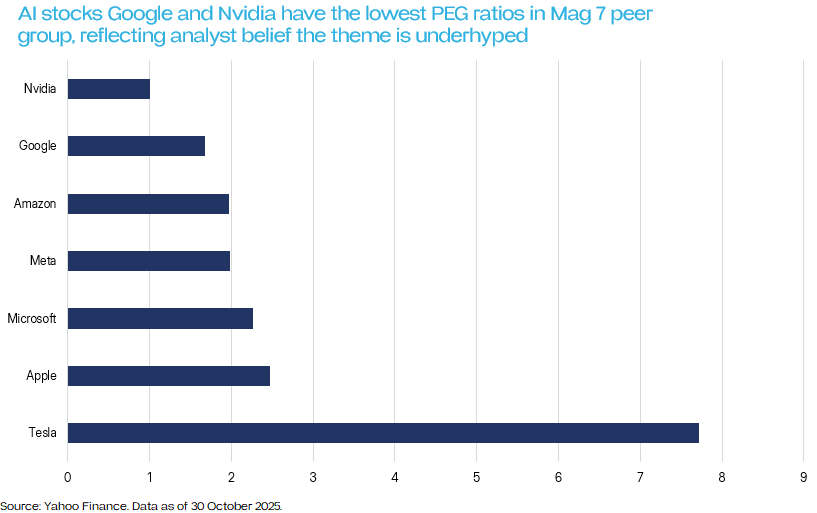Google can win the AI race
Google’s stock hitting record highs this week as Gemini passed 650 million monthly users is raising questions about who the real winner of the AI war will be.

From where we sit, Gemini’s unrelenting rise highlights something that should have been obvious all along: Google can win the AI race. Below are our reasons why.
Reason 1. Google has bought the top AI talent
Google paying Noam Shazeer US$2.7 billion to return underscores a larger point: Google has the best AI people.
Shazeer co-authored the original transformer paper, which laid the foundation for AI chatbots like ChatGPT. Insofar as there is a godfather of modern AI, it’s him.
Shazeer’s boss is Demis Hassabis, who won the Nobel prize for chemistry last year for pioneering the use of AI to solve a centuries old chemistry problem. Sitting alongside Shazeer is Jeff Dean, widely regarded as the most important computer scientist the past 20 years. Google’s casting call of AI talent rolls on like this.

Google attracts the top 0.001% because it pays the best and offers the best work conditions. Jobs at Google are more prestigious and competitive than any Silicon Valley company.
Elon Musk once remarked that Google “had basically all the top talent in AI.” That remains largely true, and an edge Google works hard to preserve.
Reason 2. Google’s vertical integration makes AI more profitable
Investors are scared of extreme AI capex, as Meta plunging 11% today shows.
Those concerned about AI capex and its consequences for margins can take solace in Google. Its vertical integration means it, uniquely, can get profits up and costs down for AI systems.
Google runs its own server farms, unlike OpenAI and Anthropic. This is margin preserving.
It is also building its own microchips to reduce reliance on Nvidia’s expensive chips – which is further margin preserving. (The threat is not lost on Nvidia CEO Jensen Huang, who has told Google and Amazon to keep him on their custom silicon as he “doesn’t like being surprised” and in theory can cut them off).
Google can embed AI in its other services too, especially Cloud, YouTube, Search, Android, and Workspace. This can then make all its other services more profitable.
Reason 3. Sales and data
If I ever tried to start an AI company I’d face a cold start problem: I have no existing customer base or data.
But Google has two billion daily users across Search, Gmail, YouTube, Maps, Chrome, and Android. That reach gives it a uniquely enormous base it can sell AI into.
It also has a continuous stream of all sorts of data to refine models. Google effectively indexes the entire public web. Its dominance in Search gives it unmatched visibility into every piece of information available on the Internet and what people want, though that might sound a little scary. Integrating Gemini across these products effectively embeds AI into the daily workflow of half the planet.
Consider Search. Even if ChatGPT and Gemini mean people perform fewer searches, Google can re-capture users through its new AI mode. Competitors must spend billions just to reach the users Google already owns.
Reason 4. Money firehose
AI development is expensive, even if you’re vertically integrated.

Google now generates US$36 billion in quarterly profit and sits on US$100 billion in cash. That firehose of money allows it to outspend virtually everyone in hardware, acquisitions, research and talent.
For perspective, OpenAI has raised roughly US$57 billion, largely from Microsoft. Google spends double that on capex each year.
Reason 5. Google is cheap even before optionality on AI and self-driving cars
Google sits on the second lowest PEG ratio in its Magnificent 7 peer group. It does so despite its core businesses all growing strongly.

On its numbers yesterday, YouTube revenue is up 15% year-over-year, Google Cloud’s revenue up 34%, and even Search & Other was up 14%. These numbers – and margin expansion they entailed – surprised the street to the upside.
So Google’s legacy businesses look cheap on their own. If we then add Google’s optionality on AI and self-driving cars, the company looks very cheap indeed. We can easily see it doubling from here.
Access Google with HUGE, BEST and WWW
For those interested in Google, our ETFs, the ETFS Magnificent 7+ ETF (HUGE), ETFS US Quality ETF (BEST), and ETFS US Technology ETF (WWW) take some of the largest positions on Google of any index ETFs in Australia.

